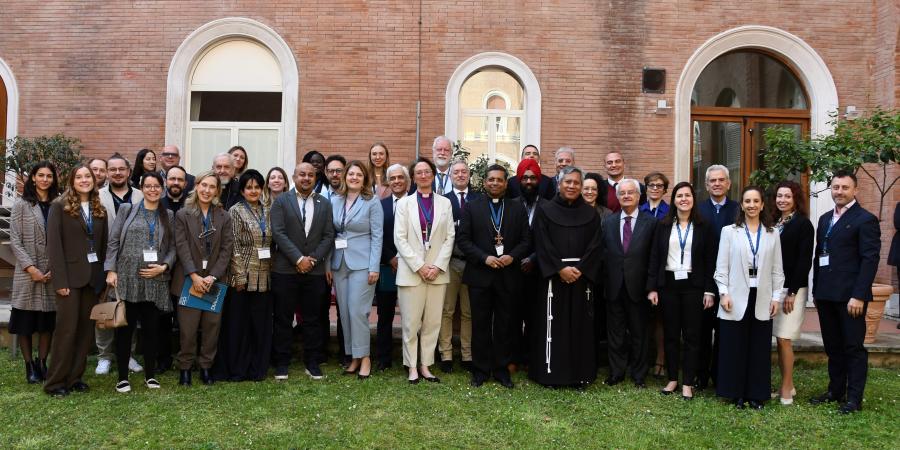
As Rome welcomes pilgrims for the Jubilee, Benedetto Zacchiroli, ECCAR President, reflects on the power of religion, the challenges of local anti-racism work, and why community cohesion and sustainability must begin at the city level.
I live in Rome. And this year, like it or not, the city is immersed in the reality of the Catholic Christian Jubilee.
As a resident, I must admit that the thousands of pilgrims can be frustrating: they slow your pace, fill the streets, interrupt your routine. But if you stop and really look at them, you see something more in their faces: the hope of a believer.
And whether you are a believer or not, you cannot help but be struck — sometimes with wonder — by the power religion still holds to move crowds and touch hearts.
Religion, in its truest form, is about relationship: with the world, with others, with mystery, with God(s). In the life of individuals and at the heart of local communities, religions continue to serve as points of reference, places of care, proximity, and hope. Every authentic religious tradition opens itself to others and to dialogue. This is not a paradox, but the very root of their contribution to social cohesion.
In the 2nd century, in the well-known Letter to Diognetus, Christians were described as “They live in their own countries, but as though they were only passing through; they take part in everything as citizens, and endure everything as foreigners.” A tension that still aptly describes the role of religions today: grounded in everyday life yet capable of pointing to a broader, more inclusive, more just horizon.
From 7 to 9 April, I had the honour of participating, as President of ECCAR (European Coalition of Cities Against Racism), in the Expert Meeting organised by KAICIID in Rome on “Interreligious Pathways to Social Cohesion and Climate Justice in Europe.”
ECCAR is a network of European cities that, for the past twenty years, has been committed to fighting all forms of racism and discrimination. Through its thematic working groups – including those on antisemitism and anti-Muslim racism – the coalition promotes concrete local policies, monitoring, training, and the exchange of practices between public administrations.
Today more than ever, this work is urgent in Italy and across Europe. But it is also needed in the rest of the world. That’s why it makes sense – and has value – that ECCAR is part of ICCAR, the International Coalition of Cities against Racism promoted by UNESCO, which constantly reminds us of the global dimension of this urgency. The local and the global are not in contradiction, but are deeply interconnected: what happens in our cities speaks to the world, and what happens in the world is reflected in our cities.
Why should ECCAR be present in gatherings like the one promoted by KAICIID?
Because fighting racism and discrimination at the local level is, first and foremost, a way of building community cohesion. And cohesive communities are not only more just – they are also more prosperous. This was clearly echoed in the motivation for the 2025 Nobel Prize in Economics, awarded to research demonstrating how inclusion and cohesion generate economic development, personal wellbeing, and social stability.
But all this – justice, inclusion, sustainability – does not begin in government palaces or high-level agendas. It is built in our neighbourhoods, on the streets, in markets, schools, sports and cultural centres, workplaces, and in the spaces of local institutions, which must represent all citizens, across the political spectrum, in all their diversity.
Local communities are essential because they are more human in scale: it is there that interpersonal relationships are most authentic, tested daily by the experience of living side by side. It is in the city squares where the worst happens – racist insults, aggression, exclusion – but also the best: small acts of solidarity, the bonds that hold a society together.
Collaborating with organisations like KAICIID — whose very existence testifies to the generative power of religion — is not only desirable: it is necessary, rational, and, now more than ever, timely.
My sincere thanks to the organisers of the meeting and to the group of experts, religious representatives and institutional actors who contributed to creating a space of genuine listening, of true sisterhood and brotherhood.
